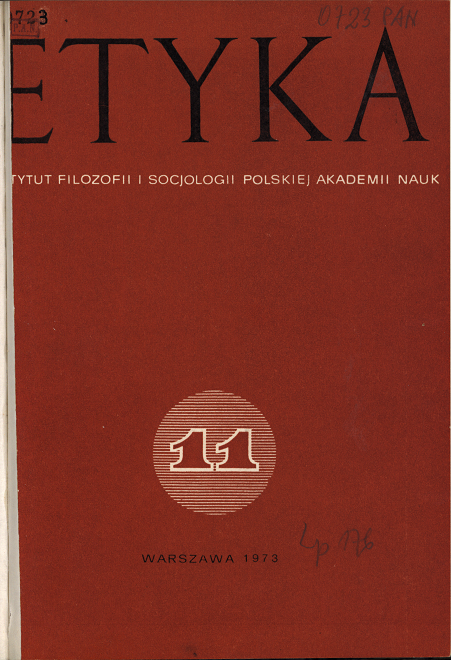Czego należy oczekiwać od utylitaryzmu czynów?
Słowa kluczowe:
utylitaryzm, czyn, platon, sokrates, empiryzmAbstrakt
In recent years, act-utilitarianism has been distinguished from rule-utilitarianism. We may say (roughly) that act-utilitarianism is the thesis that a particular act (as opposed to a type of act or class of acts) is right if and only if its utility – that is contribution towards intrinsically good states of affairs – is no less than that of some alternative act. Rule-utilitarianism is (roughly) the thesis that an act is right if and only if it conforms to a rule somehow grounded in utility. The present paper concerns one type of argument sometimes used as an attempt to show that act-utilitarianism cannot be an adequate ethical theory. Arguments of this type are characterized by an emphasis on practical difficulties involved in, or paradoxes arising out of, the attempt to apply act-utilitarianism theory to concrete moral situations.
Pobrania
Opublikowane
Numer
Dział
Licencja
Prace publikowane w czasopiśmie ETYKA udostępniane są na podstawie licencji Creative Commons Attribution No Derivatives 4.0 International (CC BY-ND), tj. uznanie autorstwa-Bez utworów zależnych. Oznacza to, że Autorki i Autorzy zachowują autorskie prawa majątkowe do utworów i wyrażają zgodę, aby ich prace były zgodnie z prawem ponownie wykorzystywane do dowolnych celów, także komercyjnych, za wyjątkiem tworzenia utworów zależnych (dzieł pochodnych), bez konieczności uzyskania uprzedniej zgody ze Autora lub wydawcy. Artykuły mogą być pobierane, drukowane, powielane i rozpowszechniane z zastrzeżeniem konieczności poprawnego oznaczenia autorstwa oraz oryginalnego miejsca publikacji. Autorzy zachowują prawa autorskie do wspomnianych utworów bez innych ograniczeń.



